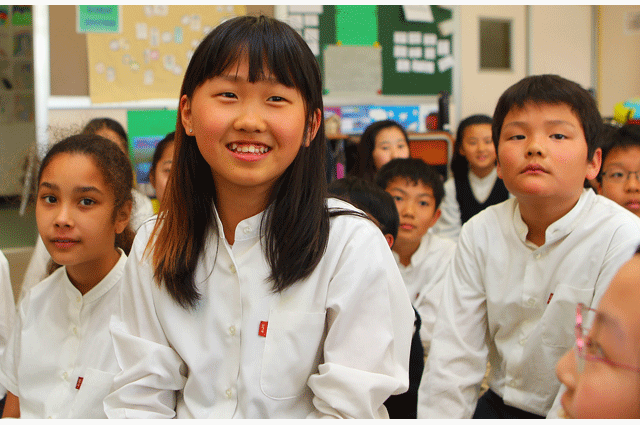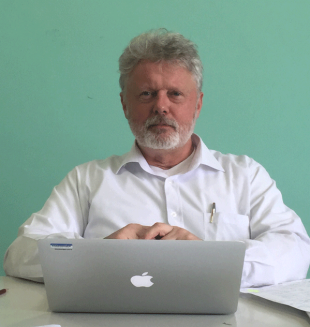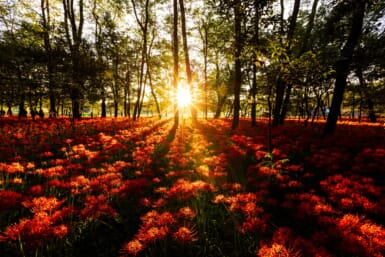A new administrator at Aoba-Japan International School opens up about a curriculum that empowers students to take charge of their own education.
I probably sound a little bit idealistic, but we’re possibly talking about the survival of sustainable progress of humanity.”
Robert Thorn, the new Secondary Principal at Aoba Japan International School (A-JIS), truly believes in the global effect that the right kind of education can bring.
While his idea of what a well-rounded education should be might seem experimental to some, he is serious about having a profound impact on the lives of young people, and in turn, the world surrounding each of them.
With just over two months under his belt at A-JIS, Thorn has hit the ground running with grand plans for continuing the recent progress the team at the school has been making towards their goal of developing learners, rather than training students.
He has taught and led in international schools everywhere from Syria and Georgia, to Switzerland, Turkey and most recently in Qatar, so he is acutely aware of the cultural nuances of education in different parts of the world. A strong advocate for “inquiry-based education,” Thorn says “it’s about identifying what characteristics make good learners and creating opportunities for young people to develop those characteristics in and out of the classroom.”
A-JIS already does things a little differently, with the introduction of “blended learning” through “vertical home rooms” (where students of different ages share the same classroom to facilitate trans-grade learner collaboration), impressively diverse extra-curricular offerings and the newly integrated “global leadership” program, where young people are challenged in a particularly unique way: “Many secondary learners are unused to freedom and the responsibility that goes with it. So we’re giving them some freedom, and we’re seeing what they do with it. It’s an opportunity to develop responsibility. About six lessons a week are given over to what’s called ‘global leadership and arts exploration.’ The kids are asked ‘if you could do what you wanted to do, what would it be and how far will you take it?’”
The program allows young people to discover and develop their passions by widening the scope of their education while moving away from text books and predetermined outcomes. Thorn proudly tells Weekender that “Some kids have started rock bands and jazz bands. Some are creating real, professional events and businesses. Others are introducing Japanese and Chinese games to the West through YouTube.”
Thorn elaborates on the school’s approach by saying that one of the most important things we should be teaching our children is “knowing how to approach things that you don’t understand, and how to learn things in and from the future. We don’t know what sort of jobs there will be or what society is going to be like. The biggest gift we can give our young people is to help them to become what we call holistic learners.”
While the teaching methods at A-JIS might seem unconventional to the uninitiated, it’s difficult to argue with the clear logic behind their principles: “If everybody were a better learner, then more people would be available to solve problems. In order to maximize our chances of solving some of the horrible issues that we have handed down to children … as many of them as possible need to be good at learning, good at solving problems, good at critical thinking, listening to each other, collaborating.”
Aoba-Japan International School
Main K-12 campus at Hikarigaoka, additional kindergarten located in Meguro
Features a curriculum based around blended, holistic and inquiry-based learning
Known for its innovative Extension Program, which involves both international students and Japanese students from the local community
For more information please visit the official website: www.japaninternationalschool.com
Sponsored Post










